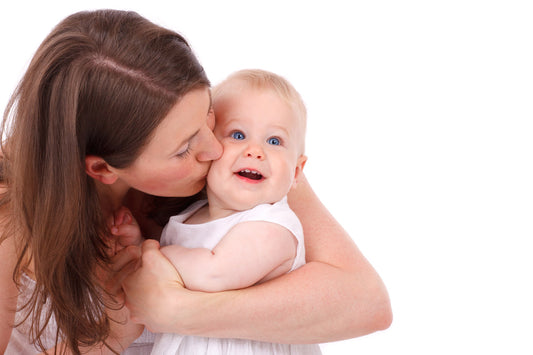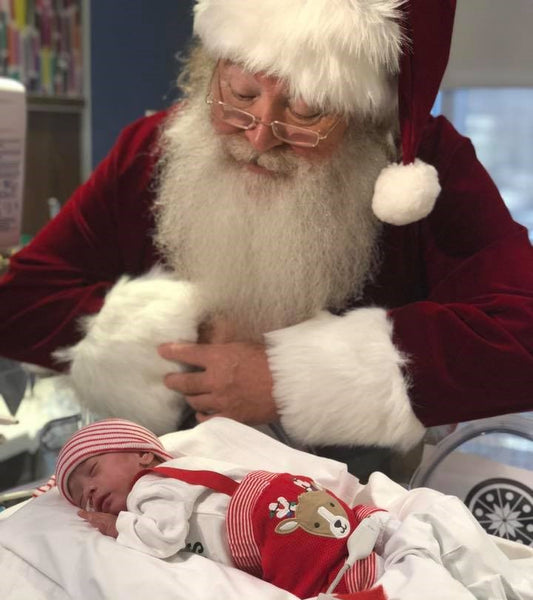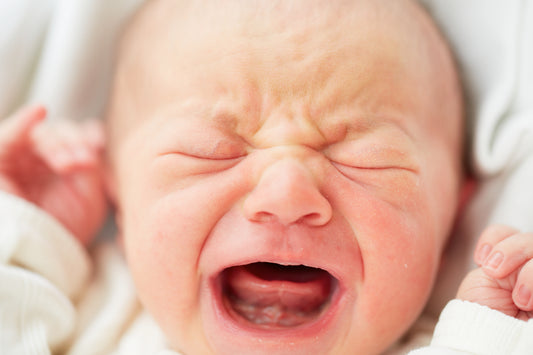- Sensory play helps to build nerve connections in the brain. Connecting synapses between sights and sounds, tastes and smells, helps develop your babies' understanding of their world.
- Sensory activities prompt children to use scientific processes while they play. Trial and error or success helps children develop the technique for testing their theories; "if i squeeze this, it makes a sound" "if i pat it, it stays silent".
- Sensory play can be calming and soothe children during difficult times. It can also be 5 quiet minutes for you; once they are engrossed in their play, the best thing you can do is sit back and watch.
- Sensory play helps develop large and fine-motor skills.
- It can also help children to develop their creative process.
Tell me and I might remember. Show me and I might understand. Let me discover for myself and I will learn and never forget.
Smell:
- Very early on it is a good idea to take your chosen blankie or soft toy to bed with you a few times before your baby is born. When you then give them the object to comfort them, they will recognise your scent.
- In time, you can introduce your baby to the familiar smells around the house - fresh laundry, baking, flowers in the garden, a herb box in the kitchen. Even try the more yucky smells and teach them to avoid them! Wander round and say the right words - name, description, make a happy face or disgusted face!
- Crushing herbs or fruits into pots and letting babies' smell them will help with weaning a later stage as the scents will be familiar.
Sight:
- An empty wrapping paper tube from Christmas and a few small soft brightly coloured foam balls makes an excellent chute to play with and help develop this concept of movement.
- Little cars and toys that go are also good around this age.
- You can join in the fun and demonstrate slow and quick movements with your arms or whole body. Be as silly as you like. Your baby will love you joining in the fun.
- For a young baby, using a ziplock bag, you can put different coloured paints in, seal and tape the bag to a table. Your baby will enjoy pushing the colours around and seeing them mix. For older babies, old fashioned finger painting is great.
Sound:
- Empty bottles filled with rice or pasta make great noisy shakers
- Upside down plastic or metal bowls and a wooden spoon make a great drum kit for slightly older babies
- My son used to enjoy watching me rip paper! He loved the noise.
- Pointing to pictures of cars, animals or actions and making the noises is a great activity to do together.
Touch:
There sense of touch will come very early with an understanding of soft or sharp, warm or cold. The first touch they have will be their skin-to-skin moments with you and already they will feel your warmth and softness. It's important to have lots of skin-to-skin and cuddle time in the early days as this provides your baby with a sense of comfort and safety.
You may notice as a baby develops they put everything in their mouth. This is because it is sensitive and your baby is using their mouth as we woudl use hands to explore items. Be very careful of small objects around this stage.
Around 6-9 months old, babies will become very alert and inquisitive about textures and use their hands more to explore. You can give them lots of simple fun things to play with to help develop this sense.
- Fill an empty box with various scarves or clothing with different texture.
- Lay out bowls of water, dried pasta, custard, and rice and hide small toys in each one. It can get a bit messy so plan this one near bathtime.
- Make rainbow spaghetti with a bit of food colouring.
- Put together a surprise box with various household objects. Check everything for loose parts or sharp edges first. A soft bristle hair brush, a blusher brush, a hard wooden comb, and a variety of velvet and silk scrunchies, makes a fun play box.
Taste:
Once a baby has been successfully introduced to food between 6-12 months, giving them a wide variety of flavours will help develop their taste buds and (hopefully) make them less likely to be a picky eater in later childhood.
Offer them a new flavour alongside two familiar flavours at mealtimes. If they don’t like the new one, at least they will eat the familiar ones. It can take several attempts before a baby will accept a new flavour. Don’t give up too quickly.
Playing “guess the flavour” can be fun with older babies and little spoons of puréed fruit & veg or even ice cream as a treat.
Sensory Classes:
In addition to at-home activities, there are many good sensory play classes and playgroups in every town. It’s worth trying out a few different ones and seeing which ones suit you and your babies’ schedule. Many are free or have a small donation box. Some even give you a cup of tea and a biscuit! They are also great places to meet other parents and make a few friends of your own.





